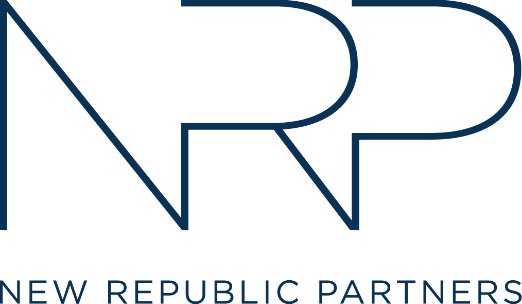By Mark T. Allan, Managing Director, New Republic Partners
Family office and RIA leaders who manage the investments of high-net-worth clients understand the necessity of having scalable alternative investments in their toolkits. The right implementation process, however, is much easier said than done.
The key question for CIOs and investment leaders who do not have the capacity to build out large investment teams is how to successfully scale alternative investment programs to provide true diversification and non-correlation while minimizing downside risk and operational complexity. We believe the answer lies in working with an outsourced alternatives partner that can combine a best-in-breed multi-manager access vehicle approach with single-manager direct allocations.
As leaders of family offices and RIAs are aware, the more direct deals you do in a particular asset class without having a team in place to evaluate and monitor those investments, the more risk you take on. There are numerous dynamics at play in private markets investing: a cumbersome subscription process, capital calls, distributions, and illiquidity, not to mention having the necessary models to provide an accurate picture of portfolio sizing when public markets are volatile. To successfully implement an institutional-style alternatives program, it can be beneficial to partner with a team that has decades of alternative investing experience.
Dispelling the myths around fund of funds
It is important to first dispel the stigma that can be sometimes associated with a fund-of-funds structure and illustrate how they differ from the access class vehicles of today in the alternatives space. The classic fund-of-funds model is tied to the early 2000s, when bundled access to high-performing hedge fund managers was in demand, as the hedge fund industry was surging relative to other alternative asset classes. The strategy proved viable until the market started to rightfully question the fees-upon-fees structure when returns became lackluster as various hedge funds strategies became ubiquitous.
Fast forward to today when there is a much larger cohort of alternative managers across private equity, private credit, venture, secondary markets, hedge funds, real assets, real estate, etc. The exorbitant number of alternative manager choices can be overwhelming. An invaluable skillset that is in short supply in today’s market is alternatives-picking expertise, which is just as important as the well-known stock-picking abilities of legendary equity investors, such as Warren Buffett. This is where experienced family office investment teams that have constructed asset class vehicles come into play. We believe they can allow outside investors to gain exposure to top managers through one investment, as the underlying managers are pooled together into one fund through one subscription agreement and ultimately one K-1 for tax purposes. This can be ideal for the underlying client as it simplifies the entire process. An important distinction between a classic fund-of-funds model, where there can be layers of management and incentive fees, and access vehicles is that access vehicles simply charge a nominal fee to gain exposure to a group of differentiated managers and unique direct and co-investment opportunities.
With that background in place, when researching an outsourced alternative investments partner that can deliver scalable, diversified asset class vehicles, our belief is it is important to focus on the following attributes:
Access to top managers along with having the ability to make direct and co-investments that generate above market returns in various asset classes is a fundamental necessity.
The market for alternatives has flourished in recent years as large banks and various technology platforms have rushed in to provide access to the large brand-name alternative managers. This has been a positive development for the industry as these players have been instrumental in educating the broader wealth market on the importance of alternatives, and it has narrowed the divide between institutions and high-net-worth individuals. But one could argue that this is simply scratching the surface by allowing the wealth channel to get index-like returns in the respective alternative asset classes for the most part given the massive size of the managers that have attracted the bulk of the capital inflows. Smaller and medium-sized managers that traffic in the lower to middle market parts of the economy on the private and public side where there is more dispersion can generate better returns or alpha over time, which is what investors should be expecting when allocating capital to alternative investments due to their inherent illiquidity.

Source: Cambridge Associates
But to find and access the best middle market managers and niche opportunities across all sectors and industries requires an experienced investment team with a substantial network of long-term relationships in the asset management industry. This knowledge and skillset come from front-line institutional-investing experience and repetition over many years across multiple economic cycles. These credentials generate the trust that an investor seeks in the alternative investment space.
Due diligence and underwriting expertise are essential elements both qualitatively and quantitatively in the evaluation of alternative investments.
These processes require meeting with and sifting through more than 700 managers and direct and co-investment opportunities a year. Understanding the reputations, backgrounds, track records, deal flow, and risk-management process of various portfolio managers allows for better decision making and a higher probability of success. This approach takes the combined talents of a diverse team comprised of analysts, family office investors, and former endowment, private markets, and hedge fund professionals. Nothing takes the place of true alignment where capital is not simply farmed out, but rather invested alongside the family offices and the CIOs making the investment decisions. When it comes to investing alongside families, being transparent, striving to reduce conflicts of interest, and ensuring everyone is a fee paying client is critical. The belief and value proposition of joining a collaborative family office investment culture enable clients to enjoy the benefits of an extremely selective investment process that has the potential to minimize downside risk and allow for the compounding of capital over time.
Operational processes must be in place to handle the complexities associated with the alternative investing life cycle.
One of the most often overlooked and important aspects of scaling an alternative investments program is having the right systems, vendor relationships, and technology in place. It also takes a deep understanding of expected returns by asset class in private markets, knowing the liquidity parameters, and having an awareness of volatility and correlation when it comes to analyzing hedge fund managers. We believe that too often investors group the various parts of the alternatives ecosystem together, which can cause sizing mismatches and unintended consequences given the illiquid nature and nuances of different types of alternative investments. Therefore, it is essential to differentiate and understand how to aggregate private equity, private credit, venture, secondaries, hedge funds, real estate, and real assets as stand-alone direct investments or how to access them through separate distinct asset class vehicles. And when a capital allocation decision has been made, there must be operational knowledge on how to streamline subscriptions, capital calls, distributions, legal costs, administration, audits, redemptions, answers to tax-related questions, etc., so the process does not become an “albatross” and prove to be counterproductive in delivering the best possible outcome for the client. Once again, it is our belief that it comes down to having a trusted, experienced team that fully understands the entire alternatives investing process across each asset class where capital is being deployed.
To summarize, when working with an outsourced alternatives partner look for a diversified multi-manager approach versus just singular direct manager allocations. The time, effort, experience, domain expertise, and professionalism it takes to scale a comprehensive alternatives program is simply not possible for many investment firms given capital constraints and the relatively small sizes of most organizations. Outsourcing to an alternative solutions partner can be a great complementary fit to direct manager allocations and alleviates the constant pressure of having to choose more individual alternative managers. The goal is to create a positive flywheel effect for your entire investment ecosystem where the end client benefits the most by gaining access to institutional-caliber investment opportunities along with receiving the superior service they deserve.
Contact us to explore how New Republic Partners can serve as your outsourced alternative investment partner.
Mark T. Allan is a managing director at New Republic Partners. He works with family offices, RIAs, endowments, foundations and individuals on alternative investment solutions across both public and private markets through the firm’s unique alternative asset class vehicles.
Reach him at info@newrepublicpartners.com
About New Republic Partners
New Republic Partners is an innovative investment management and wealth advisory firm serving affluent families, RIAs, endowments and foundations. We believe clients benefit from access to investment opportunities usually reserved for large institutional investors and the expertise and experience of a successful and seasoned investment management, wealth advisory and family office solutions team. The firm is headquartered in Charlotte, North Carolina, and serves clients across the U.S. with regional offices. More information can be found at New Republic Partners.
New Republic Capital, LLC (which does business as “New Republic Partners” or “NRP”) is an investment advisor registered with the U.S. Securities and Exchange Commission. Registration does not imply a certain level of skill or training. More information about NRP’s investment advisory services can be found in its Form ADV Part 2 and/or Form CRS, both of which are available upon request.
The opinions expressed are those of NRP. The opinions referenced are as of the date of publication and are subject to change due to changes in the market or economic conditions and may not necessarily come to pass. Forward-looking statements cannot be guaranteed.
Material presented has been derived from sources considered to be reliable, but accuracy and completeness cannot be guaranteed.

